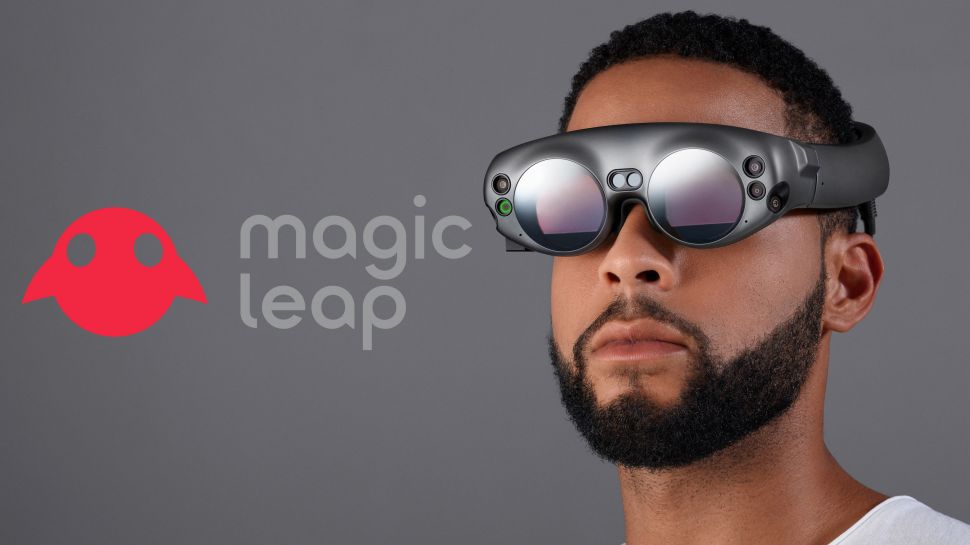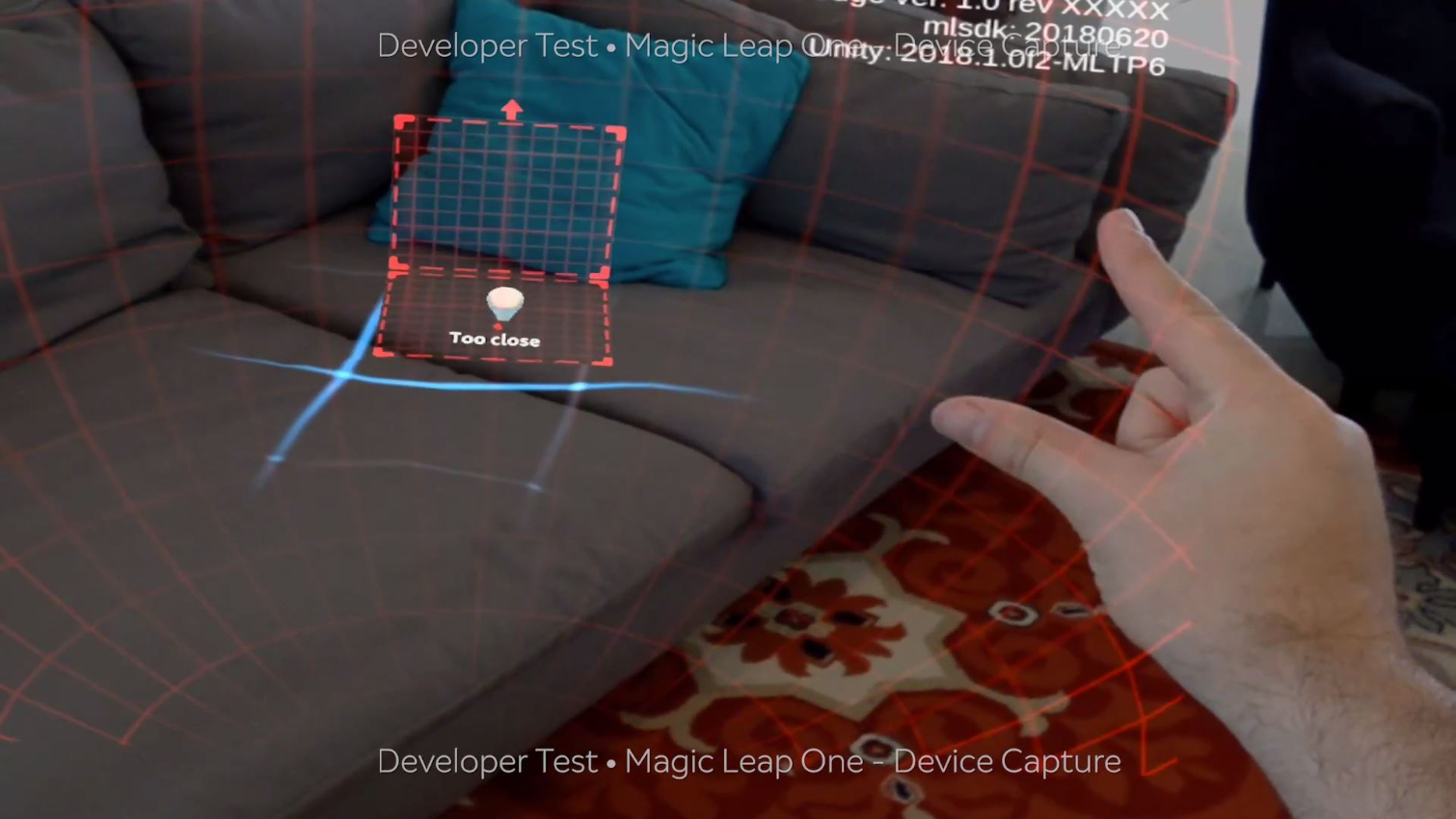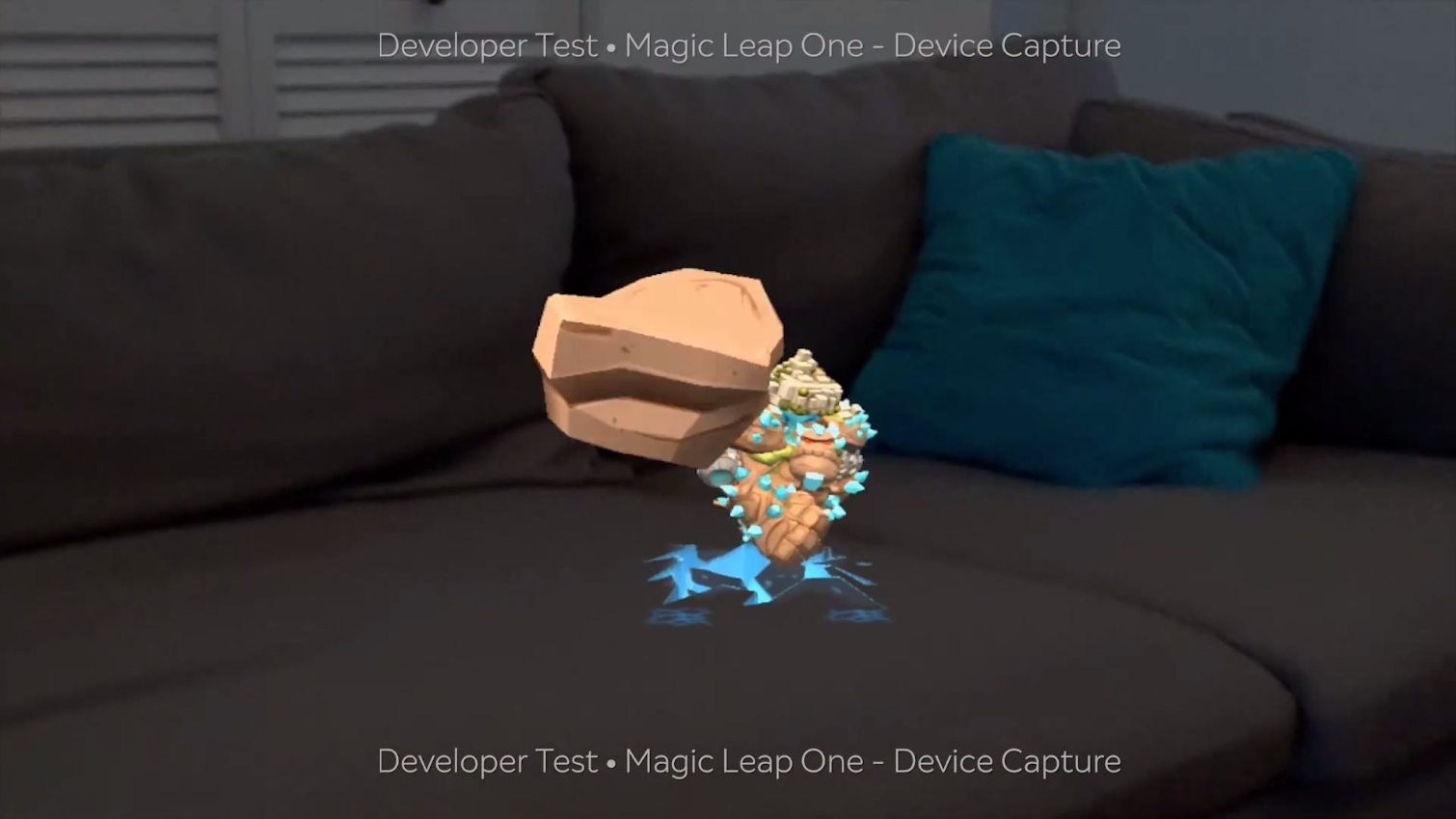Magic Leap One Powered by Nvidia Tegra TX2, Available Summer
Magic Leap finally revealed some of the specifications for its upcoming Magic Leap One mixed reality headset, and the details may surprise you. While some expected Magic Leap to partner with Qualcomm to use the company’s Snapdragon XR platform, Magic Leap went a different direction. The company today announced that the Magic Leap One features an Nvidia Tegra TX2 SoC with a Pascal-based Parker GPU. Additionally, we now know that the headset will be available this summer.
Nvidia first introduced the Tegra TX2 in early 2016, and it developed the SoC for vehicle automation, not graphics processing, so we’re surprised to find it powering an upcoming mixed reality device. Magic Leap isn't the only immersive computing company working with Nvidia's Tegra platform; GameFace Labs revealed a TX2-powered VR headset in May, but the two-year-old platform doesn't strike us as the best option for a device "priced like a high-end tablet."
The original iteration of the Tegra TX2 features two Denver 2.0 cores and four ARM Cortex A57 cores, whereas the Magic Leap One would includes a single Denver core and two 64-bit A57 cores. The package also includes an Nvidia Pascal-based GPU with 256 Cuda cores. To put the computing power into perspective, an Nvidia GTX 960, which is the entry level VR-ready GPU, features 1024 cuda cores. However, Magic Leap noted that the performance needs of VR on the Magic Leap One far exceed that of mixed reality experiences because the device isn’t required to render the background environment. Developers can focus the full computing power of the device on smaller objects, such as character models that interact with the real environment.
Magic Leap said that the GPU in the Tegra TX2 could comfortably handle between 200,000 and 400,000 polygons on screen, and the company expects that number to increase as it learns to optimize the performance of the hardware.
Magic Leap didn’t say much about the memory in the headset. We don’t know how much, how fast, or which variety of memory Magic Leap installed in the device. The company would only say that the headset includes a “good amount” of unified memory, which is shared between the GPU and CPU.
Magic Leap didn’t discuss battery life either, except that it would differ from experience to experience because the power requirements for each core are different. For example, software that is math heavy would run best on the Denver core, but it would require more power than software that runs on the A57 cores.
Focused On Developers
Magic Leap is currently focusing on its developer community, but its gearing up for the hardware launch. The company released a handful of tutorials and assets files that would help developers get a head-start creating mixed reality content. Magic Leap said that Unity and Unreal already offer optimizations for Magic Leap hardware. The headset has full support for OpenGL 4.5 and OpenGL ES 3.1, but Magic Leap recommends building applications with the Vulkan API for the best performance.
Get Tom's Hardware's best news and in-depth reviews, straight to your inbox.
Coming Soon
Magic Leap fell short of announcing the release date for the Magic Leap One headset, but the company gave a strong indication that the device would be available soon. We previously reported that Magic Leap submitted details about the headset for FCC approval, and the language associated with the filing suggests that hardware would be on the market within 180 days of the FCC’s approval. Magic Leap today all but confirmed that notion, by reaffirming that the device would be available this summer. Magic Leap’s Alan Noon noted that by summer, the company is referring to “the traditional definition of summer.” In other words, Magic Leap One should be available before September 22. Keep an eye on AT&T retail locations for a hands-on demo in the coming weeks.
Kevin Carbotte is a contributing writer for Tom's Hardware who primarily covers VR and AR hardware. He has been writing for us for more than four years.
-
bit_user Reply... Powered by Nvidia Tegra TX2 ...
Heh, I called it.
Yeah, because lightfields require a lot more horsepower than Qualcomm is packing.21133494 said:While some expected Magic Leap to partner with Qualcomm to use the company’s Snapdragon XR platform, Magic Leap went a different direction. The company today announced that the Magic Leap One features an Nvidia Tegra TX2 SoC with a Pascal-based Parker GPU.
It's basically an upgraded version of what's used in the Nintendo Switch.21133494 said:Nvidia first introduced the Tegra TX2 in early 2016, and it developed the SoC for vehicle automation, not graphics processing, so we’re surprised to find it powering an upcoming mixed reality device. Magic Leap isn't the only immersive computing company working with Nvidia's Tegra platform;
Their first SoC truly targeted at autonomous driving/robotics/etc. is Xavier, which is a deep learning beast, but not as much about traditional GPU performance.
I'm guessing it's the same silicon, but just with half the cores disabled for power and/or cost reasons.21133494 said:The original iteration of the Tegra TX2 features two Denver 2.0 cores and four ARM Cortex A57 cores, whereas the Magic Leap One would includes a single Denver core and two 64-bit A57 cores. -
gdmaclew Would someone please find a way to prevent these "Online Working" spam entries.Reply
They have invaded every online forum I've visited! -
bit_user Reply
Yeah, it should be pretty easy to have a threshold number of posts an account has to reach, before which any post including a link is subject to moderation before going live. That should do the trick, as most of these spam posters have new accounts with only a couple posts.21134962 said:Would someone please find a way to prevent these "Online Working" spam entries.
They have invaded every online forum I've visited!
And it shouldn't make much more work for mods, since most have to review and remove flagged posts, anyhow.
I suggest you take up the matter, here:
http://www.tomshardware.com/forum/forum-12.html


